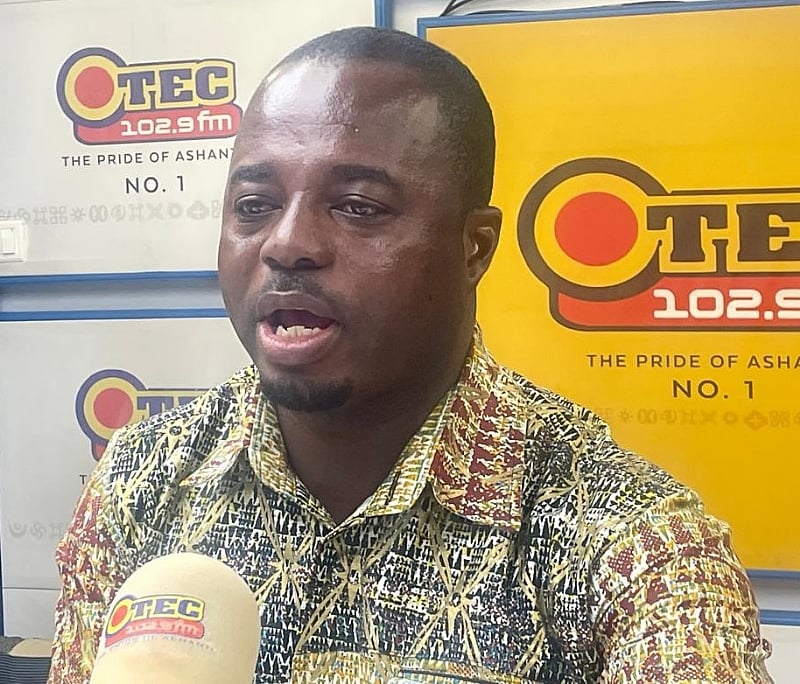The alarming surge in illegal mining activities, particularly within protected forest reserves in Ghana, has become a contentious issue, with accusations of government complicity fueling the debate. Hon. Francis Owusu Achiaw, Member of Parliament for the Juaben Constituency, has pointed fingers directly at members of the ruling National Democratic Congress (NDC), alleging their involvement in unauthorized mining operations. Achiaw claims these miners operate with a sense of impunity, boasting of government backing that allows them to bypass the necessary permitting processes. This alleged protection, according to the MP, emboldens illegal miners and undermines efforts to regulate and control the environmentally destructive practice. His statements, made during a radio interview, painted a grim picture of widespread illicit mining within forest reserves, a practice directly contributing to deforestation, water pollution, and biodiversity loss.
Achiaw’s assertions raise serious concerns about the government’s commitment to combating illegal mining, often referred to as “galamsey.” He argues that the NDC’s perceived tolerance, or even encouragement, of these activities directly contradicts their publicly stated commitment to environmental protection. The MP highlights the devastating environmental consequences of unchecked galamsey, warning that Ghana’s efforts to mitigate the damage will be futile if the government fails to address the root causes, which he believes lies within their own ranks. The continued destruction of forest reserves, vital for ecological balance and biodiversity, poses a long-term threat to the nation’s natural resources and the livelihoods of communities that depend on them.
The accusations of government involvement in illegal mining add another layer of complexity to an already challenging situation. Achiaw’s claims suggest a potential conflict of interest, where individuals within the ruling party may be prioritizing personal gain over environmental protection and the rule of law. This perceived lack of accountability undermines public trust in the government’s ability, or willingness, to effectively address the galamsey crisis. If these allegations are true, it suggests a systemic failure within the government to enforce regulations and prosecute offenders, creating a permissive environment for illegal mining to flourish.
Hon. Owusu Achiaw’s criticisms extend to the NDC government’s perceived inaction on its promise to halt mining activities within forest reserves. He emphasizes the urgent need for decisive action, urging President John Dramani Mahama to demonstrate genuine commitment by implementing concrete measures to curb illegal mining. The MP specifically calls for the repeal of Legislative Instrument (LI) 2462, a piece of legislation that he believes contributes to the problem. This delay in action, according to Achiaw, fuels the perception that the government is either complicit in the illegal activities or lacks the political will to effectively address them.
The implications of continued illegal mining are far-reaching. Beyond the immediate environmental damage, galamsey also contributes to social and economic problems. The influx of illegal miners often leads to conflicts with local communities over land and resources. The use of dangerous chemicals, such as mercury, in the mining process poses serious health risks to both miners and surrounding populations, contaminating water sources and impacting agricultural land. Furthermore, the loss of forest cover exacerbates climate change effects, contributing to soil erosion, decreased rainfall, and increased temperatures.
The situation demands a comprehensive and multi-pronged approach to combat illegal mining effectively. This includes strengthening regulatory frameworks, enhancing enforcement mechanisms, and promoting sustainable alternative livelihoods for those involved in galamsey. Crucially, addressing the alleged government complicity is paramount. Thorough investigations into these allegations are necessary to hold those responsible accountable and restore public trust. Furthermore, promoting transparency and accountability within the mining sector is essential to prevent future abuses and ensure that mining activities are conducted responsibly and sustainably, protecting Ghana’s valuable natural resources for future generations. The government must demonstrate a genuine commitment to tackling this issue head-on, moving beyond rhetoric and implementing concrete actions to curb illegal mining and protect Ghana’s environment.


